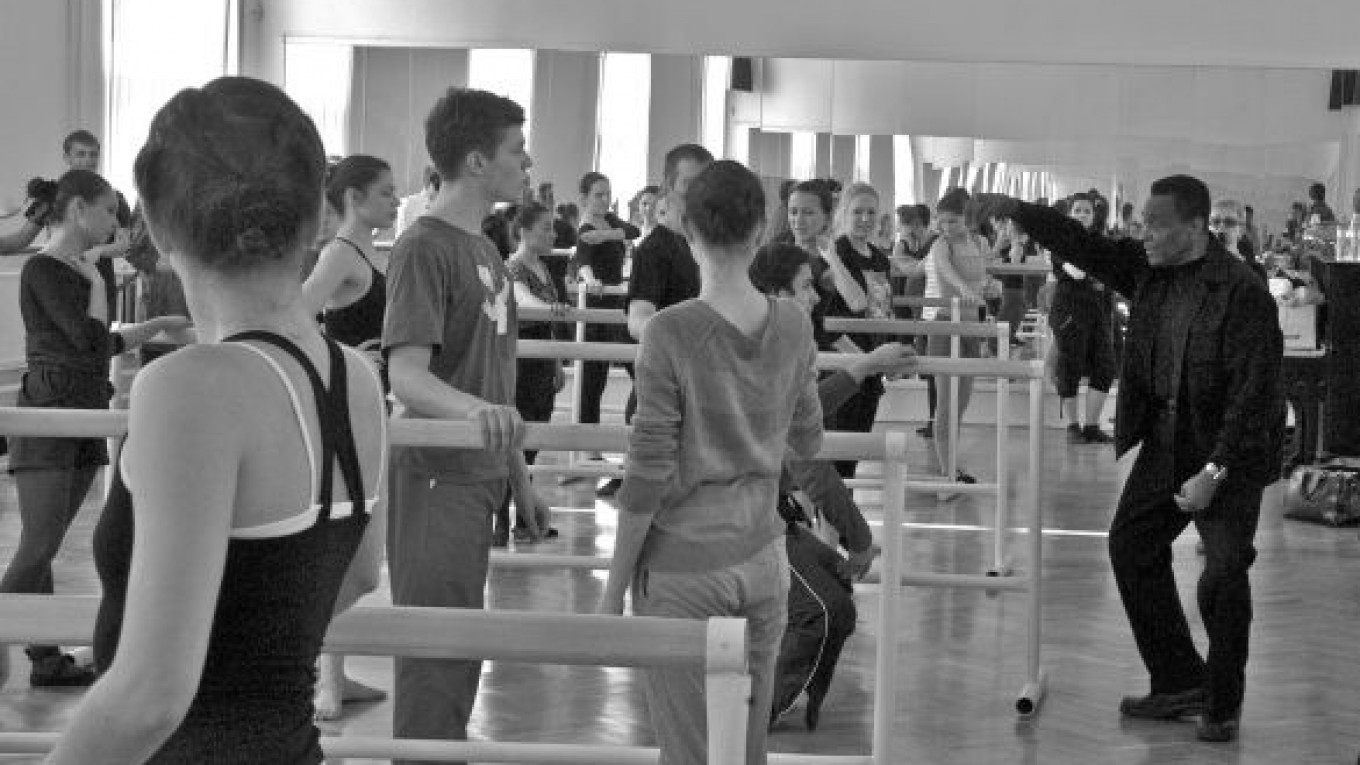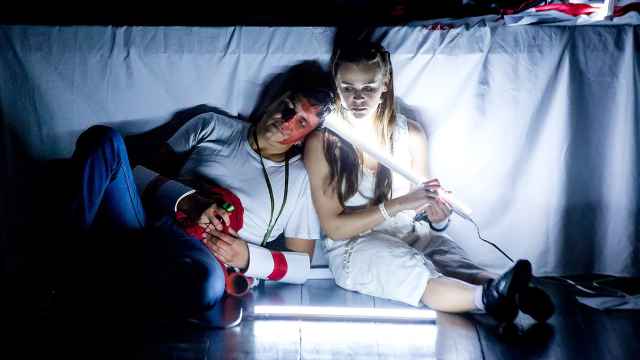"The fallacy was that black people could not do classical ballet," American ballet dancer Arthur Mitchell explained recently to an audience at the American Center Library. "So I said — 'I'll change it.'"
Arthur Mitchell became the first African-American to dance with George Balanchine's New York City Ballet in November 1955, an unprecedented accomplishment in the race-divided America of that time. In 1962, Mitchell traveled with the company to Moscow, becoming, he says, the first ballet dancer of color to perform for Russian audiences.
In 1969, Mitchell co-founded the Dance Theatre of Harlem, which became one of the most prominent performing ensembles in the country. In 1988, the dance ensemble was invited to perform in Russia. Mitchell is currently visiting as a featured speaker for American Seasons, a cultural exchange set up by the U.S.-Russia Bilateral Presidential Commission.
Q: You visited Moscow with the New York City Ballet in 1962. What was your experience like as an American in Russia during the Cold War Era?
A: Things were so different back then. You couldn't just go and walk out. We were on pins and needles because none of us had been to Russia before. The company had tremendous success. I had an extremely successful tour because they had never seen a black man dance ballet before.
Q: What were people's reactions to your performance?
A: It was incredible. I would step on the stage and hear all around "That's Arthur Mitchell. That's Arthur Mitchell." One of my great heroes was [Vakhtang] Chabukiani, the Georgian dancer. He was an older man at that time, but he came out of retirement and danced with me. Khrushchev was in power [at the time], and wherever I went, they would seat me in his box. The young lady I was with was from Denmark, so the people would say "Othello and Desdemona! Come Othello!" It was really kind of amazing.
Q: What was it like to return in 1988 with the Dance Theatre of Harlem?
A: People came to me with dance programs I had signed in 1962. Once the Russians accept you as an artist, they never forget you — particularly dancers. There was always a great love and respect. You're revered here. The love of art here, particularly dance, is unparalleled. Dance is one of their favorite art forms. Everyone seems to know it and love it.
Q: How has Russian dance changed since the fall of the Soviet Union?
A: Even this trip now, we're amazed at how much contemporary dance there is here. It's very popular. Everyone wants to be a modern dancer. They have been doing classical ballet for centuries and want to try something new. We just went to a school, and they did a variation on Alvin Ailey's "Revelations." These little kids — it was really amazing. It's still very new, but it's something that I never thought would be very popular here, and it seems that everyone wants to do it.
Q: What sort of a relationship do you have with the Russian artistic community?
A: Great love and respect. So many of the Russian dancers are very good friends of mine, and all of my teachers were Russian. [George] Balanchine, [Anatole] Obukhov, [Pierre] Vladimiroff, Madame [Felia] Doubrovska. They are all great dancers of Russia who were living in America. They were teachers of mine. The more current generation — [Rudolf] Nureyev, [Mikhail] Baryshnikov, Nina Ananiashvili from Georgia, Natalia Makarova. The arts world is much different from the regular world. You always run into people.
There's an interchange between Russia and America that I don't think has ever happened before. Artistically, I'm not speaking politically now. The exchange of cultures is very, very popular. The Bolshoi has hired their first American principal dancer. That's unheard of. And the Kirov has just hired a young American girl. That's something you would never think of, hiring an American to be one of their leading dancers, because their tradition, their syllabus, their training is so specific.
Q: Given the chance, would you come back a fourth time?
A: That's what we hope will happen. This initiative is a collaboration between the President of America and the President of Russia. They wanted this cultural exchange. What is interesting is it's based on what Diaghilev did when he took Russian music and dance to Paris so that the world would see what Russian art was like. This is the initiative that is happening through the American Embassy here: American Seasons. As an artist you get a chance to travel the world and see things that you normally wouldn't. You get a feeling for people much better than a businessman or a politician could get.
A Message from The Moscow Times:
Dear readers,
We are facing unprecedented challenges. Russia's Prosecutor General's Office has designated The Moscow Times as an "undesirable" organization, criminalizing our work and putting our staff at risk of prosecution. This follows our earlier unjust labeling as a "foreign agent."
These actions are direct attempts to silence independent journalism in Russia. The authorities claim our work "discredits the decisions of the Russian leadership." We see things differently: we strive to provide accurate, unbiased reporting on Russia.
We, the journalists of The Moscow Times, refuse to be silenced. But to continue our work, we need your help.
Your support, no matter how small, makes a world of difference. If you can, please support us monthly starting from just $2. It's quick to set up, and every contribution makes a significant impact.
By supporting The Moscow Times, you're defending open, independent journalism in the face of repression. Thank you for standing with us.
Remind me later.






